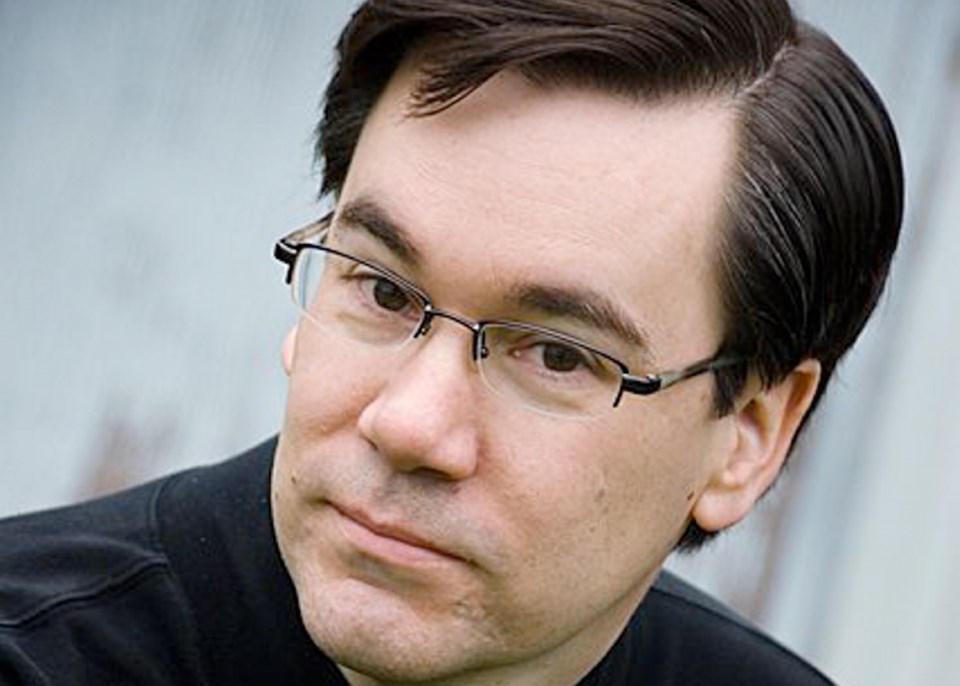 What: Victoria Symphony: Beethoven symphony cycle.
What: Victoria Symphony: Beethoven symphony cycle.
When/where: Saturday, 8 p.m.; Thursday, March 12, 8 p.m.; Sunday, March 15, 2:30 p.m.; Sunday, March 22, 2:30 p.m.; Monday, March 23, 8 p.m.; Farquhar Auditorium (University of Victoria Centre).
Tickets: $35-$58. Call 250-721-8480 or 250-385-6515; online at tickets.uvic.ca; in person at the UVic Ticket Centre and the Victoria Symphony box office (610 — 620 View St.).
What: Mark Anderson, piano.
When/where: Tonight, 8 p.m., Phillip T. Young Recital Hall (School of Music, MacLaurin Building, UVic); pre-concert talk 7 p.m.
Tickets: By donation.
Beethoven’s nine symphonies have a status in music comparable to that of Shakespeare’s plays in literature and drama: They are at the core of both the canon (those works we revere and study) and the active repertoire (those works we perform and enjoy).
Needless to say, we never want for opportunities to hear Beethoven’s symphonies, but this year there is a special reason to attend to them, as 2020 marks the 250th anniversary of Beethoven’s birth, a milestone that is being noisily celebrated all over the world. Such occasions always offer a good excuse for stock-taking, for looking afresh at even the most familiar repertoire.
Already this year, several piano and chamber-music recitals here have given special attention to the birthday boy, but several big cycles of major works are still to come, the first of them being the Victoria Symphony’s survey of the complete symphonies, which will begin on Saturday and continue over the next two weeks, straddling the Masterworks and Classics series.
The symphonies will be presented over four programs, the last of which will be performed twice. Here is the lineup:
- • Saturday: Nos. 5 and 3 (Eroica).
- • March 12: Nos. 2, 4 and 7.
- • March 15: Nos. 6 (Pastoral) and 8.
- • March 22 and 23: Nos. 1 and 9.
This cycle offers a convenient opportunity not just to hear these works in close proximity and chart the composer’s evolution as a symphonist, but to assess the Victoria Symphony’s command of this core repertoire, especially as all nine works will be conducted by the orchestra’s music director, Christian Kluxen.
(The Ninth will also feature the Victoria Choral Society and four noteworthy vocal soloists.)
The cycle will not exhaust the orchestra’s Beethoven programming this year, incidentally. On May 4, for instance, 91ԭ�� pianist Angela Cheng will return to Victoria to perform the Piano Concerto No. 2, though as recently as 2016 Cheng was here to perform a complete cycle of Beethoven’s five piano concertos. With Beethoven, evidently, a major anniversary is handy though hardly essential.
It is not all Beethoven all the time, however, even this year.
Tonight, for instance, the University of Victoria’s School of Music will sponsor a conspicuously Beethoven-free guest recital by Mark Anderson, an exceptional pianist who is a native of the San Francisco Bay Area and an associate professor at the University of British Columbia, in 91ԭ��, where he has taught since 2012.
Anderson, who has an international concert schedule and records prolifically, is a Steinway Artist, a fact appropriate to the occasion: Tonight’s concert is the second in a series of four fundraising piano recitals this semester that celebrate the 12th anniversary of UVic’s acquiring 63 new Steinway pianos to became Canada’s first all-Steinway school.
(UVic professor Arthur Rowe launched the series on Jan. 19, with an all-Beethoven program.)
Anderson’s generous program will comprise four sonatas, including Mozart’s lovely, early K. 282, in E-flat major, and an ardent, very interesting late work in one movement by the prolific German pianist-composer Julius Röntgen (1855-1932), which will reportedly receive its 91ԭ�� première. Anderson is a particular champion of Röntgen’s music, which he has performed previously in Victoria, and he has released four Röntgen CDs on the Nimbus Records label.
The two halves of tonight’s program will each culminate in a monument of the Romantic piano literature: Schubert’s lyrical, broadly scaled last sonata, in B-flat major, composed in the fall of 1828 shortly before his death; and Brahms’s Piano Sonata No. 3 in F Minor, a massive, impassioned work in five movements. Anderson made an impressively powerful recording of the Brahms, for Nimbus, in 1995.
The concert will be preceded by a talk, Secrets of Steinway, by Simon Phillips, who manages Tom Lee Music, in Langford. (Limited seating. RSVP: [email protected].) And in the recital hall’s lobby, the inner workings of a piano, borrowed from the Steinway factory in New York, will be displayed.
Be warned, however: Seeing up close the contortions a piano’s action has to go through to make a sound is a little like watching a sausage being made — not necessarily conducive to greater enjoyment of the final product.


